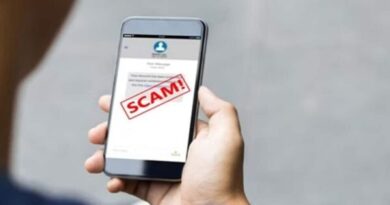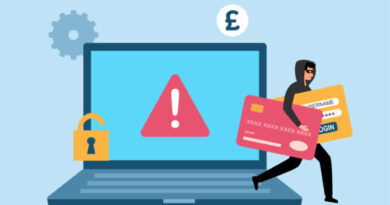The Mystery Caller: Who Called Me in the UK 020 Area Code?
Introduction
02045996879 who called me in uk 020 area code : Have you ever received a call from an unknown number with the UK’s 020 area code and wondered who could be on the other end? If so, you’re not alone. Many people experience these mysterious calls, and the curiosity to identify the caller can be overwhelming. In this article, we will explore the intricacies of deciphering those unknown numbers in the 020 area code, share tips on how to identify callers, and provide insights into why you might be receiving these calls.
Also read : https://thenewshunts.com/02045996870-who-called-me-in-london-uk-020-area-code/
Understanding the 020 Area Code
Before diving into the specifics of who might be calling you, it’s essential to understand the 020 area code. The 020 area code is primarily associated with London and its surrounding areas. It covers a vast geographic region and is one of the most widely used area codes in the United Kingdom. This extensive coverage area can make it challenging to pinpoint the exact location or identity of a caller within the 020 area code.
Possible Reasons for Receiving Calls from the 020 Area Code
Receiving calls from the 020 area code can be attributed to various reasons, and not all of them are sinister or mysterious. Here are some common scenarios:
- Businesses and Services: Many legitimate businesses and service providers operate within the 020 area code. These calls could be from restaurants confirming reservations, doctors’ offices scheduling appointments, or even delivery services providing updates on your orders.
- Telemarketing and Sales: The 020 area code is not exempt from telemarketing and sales calls. You may receive calls from companies trying to sell their products or services, often using automated dialing systems.
- Scammers and Fraudsters: Unfortunately, scam calls are prevalent across all area codes, including 020. Scammers often impersonate government agencies, banks, or utility companies to trick you into providing personal information or money.
- Wrong Numbers: Sometimes, a call from the 020 area code might simply be a case of dialing the wrong number. People make mistakes, and these calls are usually harmless.
- Friends and Family: If you have friends or family members residing in London or its nearby areas, their calls will also come from the 020 area code.
Identifying Unknown Callers in the 020 Area Code
Now that we have a better understanding of why you might receive calls from the 020 area code let’s explore some strategies to identify unknown callers:
- Use a Reverse Phone Lookup Service: Numerous online services allow you to perform reverse phone lookups. You can enter the phone number, including the 020 area code, and receive information about the caller if it’s available publicly.02045996879 who called me in uk 020 area code :
- Check Caller ID: If you have caller ID on your phone, it may display the name or business associated with the number calling you. However, this information isn’t always accurate, especially if the caller is using a VoIP service or has intentionally masked their identity.
- Search Online Directories: Some legitimate businesses and individuals have their contact information listed in online directories. You can search these directories to see if the caller’s number matches any known entity.
- Ignore Suspicious Calls: If you receive a call from an unknown number in the 020 area code and it seems suspicious, it’s best to let it go to voicemail. Legitimate callers will often leave a message, while scammers usually won’t.
- Contact Your Phone Provider: If you consistently receive unwanted or harassing calls from the 020 area code, contact your phone provider. They may be able to block the number or provide guidance on dealing with such calls.
Dealing with Scam Calls
Scam calls are a prevalent issue, and they can be unsettling. Here are some additional tips on how to handle scam calls:
- Don’t Share Personal Information: Never provide personal information, such as your Social Security number, bank details, or passwords, to an unknown caller.
- Hang Up: If a call feels suspicious, hang up immediately. Scammers often use pressure tactics to get you to stay on the line, but it’s best to disconnect.
- Report Scams: Report scam calls to relevant authorities, such as Action Fraud in the UK. This helps in tracking and preventing fraudulent activities.
Also read : https://thenewshunts.com/02045996870-who-called-me-in-london-uk-020-area-code/
Conclusion
02045996879 who called me in uk 020 area code : from the 020 area code in the UK can be a mix of legitimate, innocuous calls and potentially fraudulent or annoying ones. Understanding the nature of these calls, using caller ID and reverse phone lookup tools, and being cautious when dealing with unknown callers are essential steps in managing such calls. Remember to prioritize your safety and privacy, and never hesitate to report any suspicious activity to the appropriate authorities. In this age of digital communication, staying vigilant is crucial in safeguarding yourself from potential scams and unwanted calls in the 020 area code.
FAQ
FAQ 1: What Does the UK 020 Area Code Cover?
The UK 020 area code primarily covers London and its surrounding areas. It’s one of the most widely used area codes in the United Kingdom and encompasses a diverse range of neighborhoods, businesses, and communities within the Greater London region.
FAQ 2: Why Am I Receiving Calls from the 020 Area Code?
There are various reasons you might receive calls from the 020 area code, including:
- Legitimate Businesses: Calls from local businesses, service providers, or organizations in London.
- Telemarketing and Sales: Calls from companies promoting products or services, sometimes using automated dialing systems.
- Scammers and Fraudsters: Unfortunately, scam calls are prevalent, with scammers impersonating various entities to trick you into divulging personal information or money.
- Wrong Numbers: Occasionally, people may dial the wrong number, leading to unintended calls.
- Friends and Family: If you have contacts in the London area, their calls will originate from the 020 area code.
FAQ 3: How Can I Identify Unknown Callers in the 020 Area Code?
Identifying unknown callers from the 020 area code can be challenging, but you can:
- Use Reverse Phone Lookup Services: Online tools can provide information about the caller if it’s publicly available.
- Check Caller ID: Caller ID on your phone may display the caller’s name or business. However, this isn’t always reliable.
- Search Online Directories: Some entities have their contact details listed online, which you can cross-reference.
- Ignore Suspicious Calls: If a call seems suspicious, let it go to voicemail. Legitimate callers often leave messages.
- Contact Your Phone Provider: If you receive persistent unwanted calls, your phone provider may offer assistance in blocking the number or dealing with such calls.
FAQ 4: How Should I Deal with Scam Calls from the 020 Area Code?
Handling scam calls is crucial for your safety:
- Don’t Share Personal Information: Never divulge sensitive information like Social Security numbers, bank details, or passwords.
- Hang Up: If a call raises suspicion, terminate it immediately. Scammers use pressure tactics; it’s best to disconnect.
- Report Scams: Report scam calls to relevant authorities, such as Action Fraud in the UK, to help combat fraudulent activities.
FAQ 5: How Can I Safeguard Myself from Unwanted Calls in the 020 Area Code?
To protect yourself from unwanted calls in the 020 area code:
- Activate Call Screening: Some phones offer call screening features that filter out unwanted calls.
- Use a Call Blocking App: Install a call blocking app that identifies and blocks potential spam calls.
- Register with TPS: Join the Telephone Preference Service (TPS) in the UK to reduce unwanted sales and marketing calls.
-
Stay Informed: Keep up-to-date with the latest scams and frauds to recognize potential threats.




